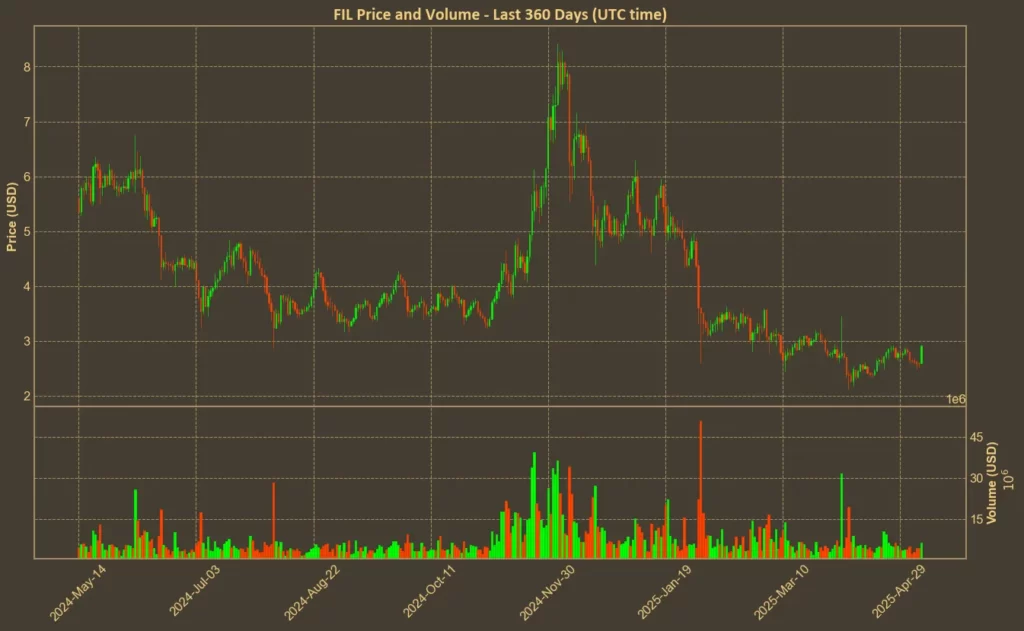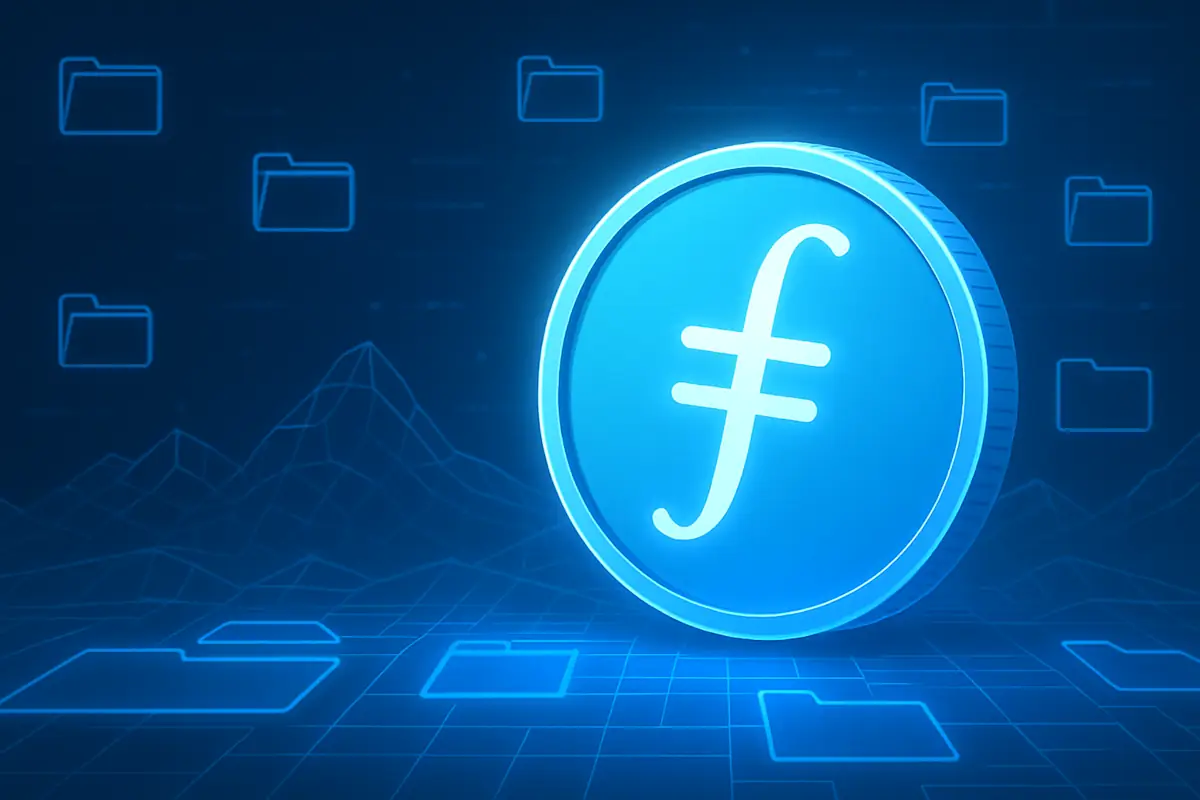The push toward decentralized storage solutions has gained momentum over the past few years, as growing concerns around data privacy and control continue to shape the digital storage market. Filecoin (FIL) introduced as an alternative to traditional cloud services, offering a peer-to-peer network with cryptographic assurances.
Table of Contents
What is Filecoin Network?
Filecoin was envisioned as a decentralized storage network designed to store files across a distributed system rather than relying on centralized servers. First proposed in a white paper by Protocol Labs, the project raised $250 million during its initial coin offering in 2017. This funding allowed developers to build out the platform, which officially launched its mainnet at the end of 2020.
Filecoin’s architecture is closely tied to the InterPlanetary File System (IPFS), a protocol created to identify data by its content instead of its location. This connection with IPFS sets Filecoin apart by enabling enhanced transparency and security. While traditional web protocols point to data based on a URL, IPFS uses unique content identifiers, reducing risks tied to centralized control.
Filecoin’s early adopters include the University of California, Berkeley, and the City of Philadelphia. These organizations turned to Filecoin not only for its decentralized structure but also for its appeal to developers in the Web3 space, who use the Filecoin Virtual Machine (FVM) to build decentralized applications and data-focused autonomous organizations.
Read also: 5 Coins Leading the Way in Ultra-Low Transaction Fees
How Does Filecoin Work?
At its core, Filecoin operates by creating a market for unused storage space. Storage providers, often called miners, earn FIL tokens by offering capacity to clients who need to store data. Clients pay miners in FIL tokens for both storing and retrieving data. These transactions occur in a decentralized market where supply meets demand transparently.
A key feature of Filecoin is the flexibility it gives both clients and storage providers. Clients can negotiate deals based on price, storage duration, and data redundancy requirements. In contrast, storage providers set prices depending on their reliability and storage availability. This system aims to encourage competition, offering potential cost savings when compared with traditional cloud platforms.
Data retrieval operates as a secondary market. Clients pay retrieval miners to access their stored data, rewarding those who provide faster service. Behind the scenes, the network relies on cryptographic proofs to ensure data integrity. Proof of Replication confirms that storage providers hold complete copies of client data, while Proof of Spacetime verifies that data remains stored over a set period.
Filecoin Storage Is Cheap
Filecoin’s architecture offers several advantages over centralized cloud providers such as Google Cloud or AWS. A significant factor is cost. Estimates show storing 100 GiB on AWS might cost around $1.34 per month, compared with Filecoin’s price, which can drop to as little as $0.00002. This drastic difference makes Filecoin a cost-effective option for large-scale storage.
The decentralized nature of Filecoin also strengthens data privacy. Data is encrypted and distributed across multiple nodes, preventing any single entity from holding complete control over the dataset. This approach reduces vulnerability to breaches, a concern commonly raised with centralized providers.
Redundancy is another strength. By storing multiple copies of data across different nodes, Filecoin increases resilience against data loss. As participation in the network grows, storage capacity scales organically, avoiding the infrastructure challenges faced by traditional providers needing to expand physical data centers.
Staking and Mining Challenges
Participating in the Filecoin network as a storage provider involves more than offering spare hard drive space. Miners are required to stake FIL tokens as collateral, proportional to their storage capacity and other factors dictated by network parameters. Before they can begin providing storage, miners must set up nodes with both hardware and software that meet specific requirements.
This upfront cost has created barriers for individuals hoping to join the network using only consumer-level equipment. While Filecoin promotes the idea of democratizing cloud storage, in practice, mining and staking FIL often favor organizations that already operate data center infrastructure or have access to substantial resources. Earning rewards through storage provision involves maintaining uptime, meeting proof requirements, and holding sufficient collateral.
Filecoin Price
Filecoin’s token, FIL, has seen significant price volatility since its peak. After reaching an all-time high of $237 on April 1, 2021, its value has declined sharply, falling 99% from that record. In mid-March 2024, the token barely passed the $10.60 mark before sliding back down.
At the time of writing, it trades at $2.82, up 27% monthly. However, the long-term trend is still negative, with nearly 50% yearly drop. Despite those struggles, Filecoin’s market capitalization stands at $1.9 billion.

Final Words
Despite its technical strengths, Filecoin faces difficulties. The requirement for substantial collateral limits participation from individuals hoping to rent out casual spare storage space. Meanwhile, retrieval speeds and the overall maturity of the ecosystem continue to draw scrutiny from potential enterprise users.
Yet, Filecoin’s proposition of a decentralized, cost-effective, and privacy-enhancing storage platform retains appeal and makes it unique compared to other altcoins. Its ability to secure some institutional users signals confidence in its potential – however, its broader adoption faces significant competition from traditional cloud services and structural challenges.
Read also: What is Monero (XMR)? Here’s All You Need to Know




